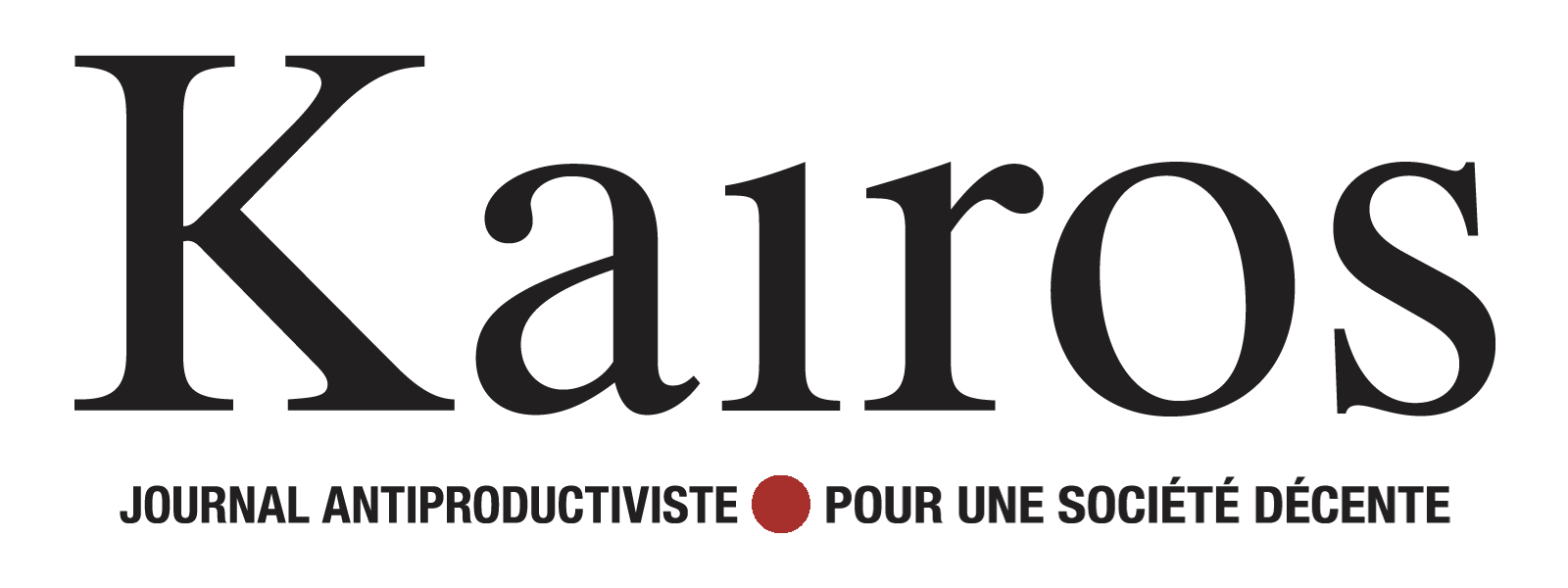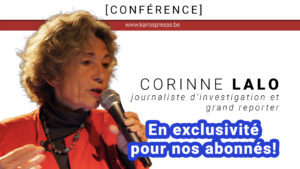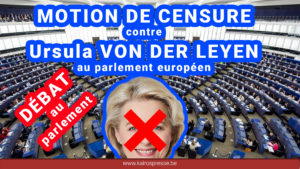
On Wednesday, February 2, 2022, a draft executive order regarding health promotion(1) will be submitted for discussion and vote in the plenary session of the Walloon Parliament. This draft order has already been discussed in the Health Committee. On the occasion of these debates, the PTB alerted the press to the « Walloon pandemic law » that would hide behind the appearance of a simple technical modification of the current decree(2). According to the leader of the PTB group in the Walloon Parliament, Germain Mugemangango, this draft decree brought forward by Minister Christie Morreale (PS) brings, by stealth, provisions that should be the subject of a « real debate » and hearings of experts, representatives of civil society and workers’ representatives before the Parliament(3). But this broad debate is clearly not envisaged. According to Mathilde Vandorpe (cdH), a whole part of this text is inadmissible(4) !
According to the PTB and cdH, articles 17 to 21 (briefly presented below) are problematic because of their impact on citizens’ rights. For the PTB, these 5 articles should be removed from the draft decree.
Indeed, Article 18 provides that regional health inspectors, physicians or competent nurses shall ensure and, if necessary, require that a person suspected of having a life-threatening illness at short notice OR who has the symptomatology of a serious epidemic condition undergo the necessary tests and, where appropriate, undergo a appropriate medicaltreatment, preventive or curative. First of all, it should be noted that the epidemic character does not have to be scientifically established(5). This provision raises questions from a human rights perspective. The issue of patient consent is not clear in this text, nor does it respect the right to accept death on a personal level. On the other hand, it does not seem to be out of the question that, in the event that mandatory vaccination is rejected at the federal level, it could be imposed without debate by means of this decree. It would also appear that this decree attempts to move us into the era of compulsory treatment, a disproportion noted by the Council of State, given the right to refuse medical treatment.
According to this article 18, these same inspectors, doctors or nurses, whose prerogatives are very broad and poorly defined, will be able to order the isolation of these patients within a hospital service, at home or in another appropriate place. They will also have the right to enter the homes of these people and even disinfect the premises. The Council of State considers that the inviolability of the home is affected here. In the opinion of the PTB and the cdH, this measure should be limited to a suspicion of serious and imminent danger. Inspectors, doctors or nurses also have the right, under this draft decree, to prohibit professional activities and attendance in communities during the time of contagiousness. However, as the list of diseases and pathogens concerned by these measures has not been established, as the notion of infectious disease has not been defined and as the epidemic character does not have to be immediately proven, risks of abuse cannot be excluded!
Even if certain measures already exist in case of infectious diseases, this draft decree increases the powers of hygiene inspectors and especially those of the Walloon government if the latter considers it necessary to declare a state of health emergency. Indeed, Article 19 gives the Walloon government the right to declare a state of health emergency by decree and to adopt certain expressly defined measures, as well as « all other necessary measures ».(6)This would not necessarily be justified by other scientific or democratic bodies such as the Data Protection Authority or the League for Human Rights. For the cdH, such measures are akin to « special powers »: a Pandora’s box is being opened here, justifying possible infringements of certain fundamental rights, as the Council of State has pointed out, and allowing possible infringements of the role of Parliament and of democratic functioning. The PTB speaks of a « paradigm shift »!
Article 20 provides for penalties (fines, imprisonment) for anyone who fails to comply with the decisions of inspectors, doctors and nurses or who obstructs their missions. Article 21 provides for similar penalties for anyone who fails to comply with or obstructs the execution of government decisions.
Article 17 sets out the nature of the personal data that will have to be collected from these patients: surname, first name, place and date of birth, NISS, sex, physical address, contact data, occupation, activities, communities attended, pathology, clinical history, treatments, persons at risk in the entourage, source of contamination… According to the PTB, this article poses problems in terms of personal data protection. In the federal pandemic law, expert hearings led to changes in a similar initial section.
According to the cdH, article 16 is also problematic, as this article allows the Walloon government to delegate to the Minister of Health the capacity to establish a list of infectious diseases and pathogens concerned by the provisions of articles 18 to 21: any disease that is life-threatening and presents an epidemic risk, even before scientific validation, will henceforth have to be brought to the attention of the AViQ services(7)under the pretext of promoting better responsiveness. For the cdH, the exorbitant powers conferred by this decree on the hygiene inspectors should not depend on a list drawn up by a single minister: this opens the door to possible anti-democratic abuses in the near or more distant future. It remains to be seen if and how this section will be amended.
For the time being, the Committee on Employment, Social Action and Health has recommended, by 7 votes to 1 and 1 abstention, the adoption of this draft decree (amended on January 18 in committee) by the Plenary Assembly.
This draft decree is one of many attempts in recent months to infringe certain fundamental rights, including the obligation to treat and the violation of the home. The short, medium or long term consequences of the opening of this Pandora’s box are infinite and not so much fantasized: obligation of specific treatments and prohibition of other treatments (including perhaps natural treatments or those that have fallen into the public domain) according to criteria defined by the State (and the lobbies); disappearance of freedom of care for oneself and one’s children; isolation in places other than the home or the hospital; prohibition of working or frequenting communities for people carrying infectious diseases (what about mononucleosis, hepatitis B, HIV, etc? ); compulsory vaccination from birth for the potentially infinite list of diseases for which vaccines (including mRNA) are being prepared or will be developed; withdrawal of social rights for people who refuse to accept the « sanitary » measures imposed by the public authorities, which could also, in the long term, withdraw social rights from smokers, obese people, the inactive and other imprudent people who clog up the hospitals and put a strain on the public finances… before the abolition of all social protection! So many totalitarian measures favouring private interests under the pretext of a progressive right to health: is this really why we voted for these parties, elected these MPs and put in place these ministers?
- Projet de décret modifiant le Code wallon de l’Action sociale et de la Santé en ce qui concerne la promotion de la santé et la prévention (Doc. 796 (2021–2022) N° 1 à 4). Voir Le Parlement de Wallonie (parlement-wallonie.be).
- Pour le PTB, le décret sur la promotion de la santé cache une « loi pandémie wallonne » – Le Spécialiste (lespecialiste.be)
- Un décret « pandémie » wallon se cache-t-il derrière un texte plus anodin? – La Libre ; Pour le PTB, le décret sur la promotion de la santé cache une « loi pandémie wallonne » – Le Spécialiste (lespecialiste.be).
- Compte-rendu intégral de la séance publique de la Commission emploi, action sociale, santé du 18 janvier 2022, C.R.I.C. N° 102 (2021–2022), p. 35. Voir Le Parlement de Wallonie (parlement-wallonie.be).
- Compte-rendu intégral de la séance publique de la commission emploi, action sociale, santé du 18 janvier 2022, C.R.I.C. N° 102 (2021–2022), p. 52.
- Contrairement à la loi pandémie fédérale qui prévoit une liste de mesures bien définies.
- Compte-rendu intégral de la séance publique de la commission emploi, action sociale, santé du 18 janvier 2022, C.R.I.C. N° 102 (2021–2022), p. 33.






